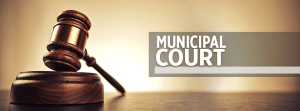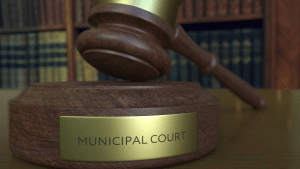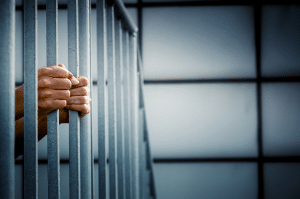A municipal court is a small neighborhood court that deals with local rules and small problems. If someone breaks a rule in the city or town, like not following traffic laws or doing something minor that’s not allowed, they might end up in this court. Let’s learn more about municipal courts in this article.
A municipal court is like a special local court in your town or neighborhood. It’s where individuals go to tackle ordinary issues that include the law. Thus, if somebody accomplishes something wrong or there’s a conflict locally, this court helps sort out how things ought to be made right. It resembles a more modest, well-disposed variant of a major town hall, where individuals can examine their issues and track down answers for everybody in the area.
In a civil court, they manage little issues that occur in the town or city. When somebody gets a ticket for driving excessively quickly or stopping in some unacceptable spot, or on the other hand, on the off chance that somebody takes something little that doesn’t have a place with them, these issues go to civil court. It’s additionally for things like when individuals act severely out in the open. If somebody accomplishes something not intense yet contrary to the guidelines, they may need to go to this exceptional court to figure it out.
Before we learn about the different kinds of jurisdictions in municipal court, let’s understand its nature and answer the primary question, “What is a municipal court?”
What is a municipal court?
A municipal court is like a special local court made by your city or town. It’s there to deal with small legal problems within your community, like traffic tickets or minor rule-breaking. This court works independently for your city or town, making it easier for people who live there to solve their legal issues without going to bigger state or federal courts. It’s like having a neighborhood helper for small problems with rules and laws!
- Municipal courts: Small problem superheroes
- Guiding the community
- A venue for problem resolution
- Efficient and effective solutions
- Improving quality of life
- Enforcing fairness and order
Municipal courts: Small problem superheroes
Municipal courts are like superheroes for small problems in your town! They make sure that when people do little things wrong, like breaking small rules, they get treated fairly and quickly. By doing this, the courts help keep the town safe and peaceful. They stop small problems from becoming big ones, making everyone feel secure.
Guiding the community
These courts also teach people about the rules in the town so everyone knows what’s right and wrong. It’s like having friendly guides who help everyone follow the rules and make the community a great place to live!
A venue for problem resolution
Municipal courts are like places where people can discuss problems and find solutions without going to big courtrooms. If two people disagree, they can go to this special court. There, a judge listens to both sides and makes decisions based on the rules and facts.
Efficient and effective solutions
Sometimes, instead of going through a long court process, the court suggests other ways to fix the problem, like talking it out or doing community service. This helps save time and money. It also encourages people to talk and understand each other, making the community happier and more peaceful!
Improving the quality of life
Municipal courts deal with problems that affect how nice it is to live in a place like when people are too noisy, buildings don’t follow the rules, or issues with animals. They help ensure that the town or city is a good place to live, where everyone can enjoy a quiet and happy environment.
Enforcing fairness and order
These courts ensure that everyone is treated fairly and that the community stays in order, like the referees in a game, making sure everyone plays by the rules and has a good time living there!
What types of cases appear in municipal courts?
Municipal courts are like the problem solvers of the neighborhood. They deal with many different issues to ensure everyone gets along and follows the rules in the town or city where you live. So, if there’s a problem, these courts step in and help fix it, keeping the community a happy and peaceful place for everyone. Here are the main types of cases that appear in municipal courts:
- Traffic violations
- Ordinance violations
- Misdemeanor offenses
- Domestic disputes and restraining orders
- Property damage and theft
- Animal control cases
- Juvenile offenses
- Environmental violations
Traffic violations:
Municipal courts deal with lots of cases about driving. If someone speeds, drives recklessly, or even drinks and drives, they might end up in this court. Even parking tickets go here! If someone breaks the driving rules in your town or city, this special court helps decide what should happen next. It’s like we’re driving problems to get sorted out so everyone can be safe on the roads.
Ordinance violations:
Local ordinances are like the special rules made by your town or city to keep everything running smoothly. These rules cover many things, like being too loud, causing problems in public places, or not following the town’s health rules. If somebody, whether an individual or a business, doesn’t keep these guidelines, they could need to go to a metropolitan court.
This court helps sort out what occurred and the thing to do about it. Thus, it resembles where individuals go, assuming they disrupt the town’s extraordinary guidelines, and the court helps figure out the circumstance.
Misdemeanor offenses:
Municipal courts handle small crimes that are not very serious but still not okay, like stealing something little, causing trouble in public, or getting into a small fight. These are called misdemeanor offenses. Even though they’re not huge violations, they can make the local area less protected or serene. Thus, if somebody does one of these things, the metropolitan court sorts out what occurred and guarantees things are fair and safe for everybody in the area.
Domestic disputes and restraining orders:
Municipal courts help families in tough situations, especially when there’s a problem with fighting or being unsafe at home, called domestic violence. They can issue special orders to keep people safe, like telling someone to stay away from another person. These cases are important because they ensure everyone in the family is okay and feels safe. The court helps sort out problems and ensures everyone is protected and well cared for.
Property damage and theft:
Municipal courts deal with problems like when someone damages things, paints on walls, or takes something unimportant that doesn’t belong to them. These issues might not be as big as serious crimes, but they’re still important to fix. When people’s things get damaged or stolen, it can worry others. So, the court steps in to make sure these problems get solved. The court helps the community feel safe and secure in their homes and surroundings by handling these smaller issues.
Animal control cases:
Municipal courts help with problems involving pets in the neighborhood. If someone doesn’t follow the rules for owning pets, like letting them run without a leash or having a pet that acts mean, they might have to go to this court. It’s all about ensuring people are responsible pet owners and everyone stays safe. So, if there’s a problem with animals in the town, the court steps in to ensure the situation is fair and safe for everyone, both the people and the animals.
Juvenile offenses:
Municipal courts also deal with problems caused by kids who are under 18 years old. If these young people do something wrong, like drinking when they’re not allowed or breaking curfew rules, they might have to go to this special court.
But the goal here isn’t just to punish them; it’s to help them learn from their mistakes and stop them from doing bad things again. The court’s job is to guide these young people in the right direction and ensure they don’t get into more trouble. It’s all about giving them a chance to change and make better choices.
Environmental violations:
Municipal courts also deal with problems that harm the environment, like when people dump trash where they shouldn’t, pollute the air or water, or break the rules about caring for nature. These cases are important because they help keep our environment clean and healthy.
When people don’t follow the rules, it can dirty our air, water, and land, which is bad for plants, animals, and us. So, the court ensures everyone obeys the environmental rules and keeps our town or city a nice place to live, with clean air, water, and nature.
What kind of jurisdictions does a municipal court have?
Municipal courts are like referees in a game, but they only oversee certain parts of the game, not the whole thing. They have specific rules about what they can decide and what problems they can solve. Like a soccer referee doesn’t make decisions about basketball, municipal courts focus on particular issues within their area.
So, they’re like the referees who know the rules for their specific game, helping people in their town or city with the problems that fall under their special rules. Here are the key types of jurisdictions that municipal courts operate within:
- Geographical jurisdiction
- Subject matter jurisdiction
- Personal jurisdiction
- Exclusive vs. Concurrent jurisdiction
- Appellate jurisdiction
Geographical jurisdiction:
Geographical jurisdiction means that a municipal court can only make decisions about things that happen; inside the town or city that created the court. Just like your school rules apply only when you’re in school, the court’s rules only work within the specific town or city area. So, if something goes wrong, like a small crime or a problem, the court can only help if it happens inside that town or city. It’s like the court’s special zone where it can make fair decisions about local problems.
Subject matter jurisdiction:
Subject matter jurisdiction is like the special topics a municipal court can deal with. Imagine the court as a book that only has certain chapters inside. These chapters include local rules, traffic problems, small crimes, and some arguments between people. But it doesn’t have chapters about big crimes or very complicated arguments like the ones you might see in movies.
Those big and complex issues have their special books, or in this case, higher-level state or federal courts, because they need more experienced judges and bigger rules to handle them. So, the municipal court focuses on simpler problems in the neighborhood, like local issues in your special chapter of the big law book.
Personal jurisdiction:
Personal jurisdiction is like a court’s power over specific people in a case. Municipal courts can only make decisions about people who live in the same town or city where the issue happened. So, if someone from a different place did something wrong in that town, the local court can’t handle the case.
It’s like saying the court can only talk to people in the same neighborhood; if someone’s not from there, the case has to go to a different place where that person lives. That way, everyone gets a fair trial in the right place where they belong.
Exclusive vs. Concurrent jurisdiction:
Municipal courts can be the only place where certain problems are solved in their town or city. That means only they can handle those specific issues. But sometimes, different courts, like the local one and a bigger county court, can deal with the same problem in the same area.
It’s like having two stores in the same neighborhood selling ice cream. They’re both allowed to do it, but they follow the neighborhood rules. Whether it’s only one store or a few, it depends on what the neighborhood laws say. So, these courts work in different ways, but they all follow the local rules to help people in the neighborhood.
Appellate jurisdiction:
Municipal courts are like the first judges deciding about problems in their town. But if someone thinks the judge made a mistake or didn’t treat them fairly, they can ask a higher court, like a county or appellate court, to check if everything was done right. It’s like playing a game and having a referee.
If you think the referee didn’t follow the rules, you can ask another referee if it was fair. So, if someone feels the first court made a mistake or didn’t respect their rights, they can ask a higher court to look and ensure everything is fair and square.
Can municipal courts send you to jail?
Municipal courts can decide if someone should go to jail, but they have rules about when and why they can do that. It’s like a teacher giving detention for breaking the classroom rules; the teacher can decide, but only if the rules are seriously broken.
So, the court can send someone to jail, but they can only do it for certain reasons and when it’s really necessary, following the rules that are in place. Here is a breakdown of the factors involved:
- Nature of the offense
- Severity of the sentence
- Alternative penalties
- Right to legal representation
- Appeals process
Nature of the offense:
Municipal courts can decide to send someone to jail, but only for bigger problems, not small mistakes. If someone keeps breaking the local rules a lot, does something more serious like a small crime, or drives dangerously (like drunk driving), the court might say they need to go to jail.
If someone keeps breaking school rules or does something really wrong, they might get a bigger punishment, like detention or being grounded. So, the court uses jail time for serious situations to ensure everyone understands the rules are important and must be followed.
Severity of the sentence:
If someone is sent to jail by a municipal court, it’s usually not for a long time, like years. Instead, it might be for a short period, like a few days, weeks, or months. How long someone stays in jail depends on the problem’s seriousness and the local rules. Like the boss of the court, the judge decides the exact time based on the rules and how bad the situation is. So, even though jail is a serious punishment, it’s usually for a shorter time when it’s decided by a municipal court.
Alternative penalties:
Municipal courts look for other ways to teach someone a lesson before sending them to jail. Instead of jail, they might give fines (like money you have to pay), ask the person to do community service (helping the neighborhood), or attend counseling programs.
Like the boss of the court, the judge thinks about many things, like if the person feels sorry for what they did and if they are willing to make things right. The idea is to help the person change and understand why what they did was wrong so they won’t repeat it. It’s like giving them a chance to learn from their mistakes and become a better person.
Right to legal representation:
If someone might go to jail because of a problem in municipal court, they can have a special person called a lawyer to help them. This lawyer is like a guide who knows much about the rules and can speak for the person in court. If the person doesn’t have money to pay for a lawyer, the court can provide one for free, called a public defender.
Having a lawyer is important because they ensure the person is treated fairly and that the court does everything the right way during the trial and when deciding what punishment is fair. It’s like having a helper to ensure everything is fair and just in the court.
Appeals process:
If someone is sent to jail by a municipal court and thinks something wasn’t fair or right, they can ask a higher court to check if everything was done correctly. If you play a game and think the referee made a wrong call, you can ask another referee to see if it was fair. So, if the person believes the court made a mistake or treated them unfairly, they have the right to ask a bigger, more important court to look at the situation and ensure everything is fair and okay.
Conclusion:
Municipal courts are like important puzzle pieces in the town’s big rules puzzle. They handle many problems, like local rules, traffic issues, and small crimes in their town. These courts can decide if someone should go to jail, but they also look for other ways to help people learn from their mistakes, like doing community service.
The goal is to ensure everyone understands the rules, help people change for the better, and keep the town safe and happy. So, these courts are like friendly helpers, ensuring everyone follows the rules and peacefully lives together.




